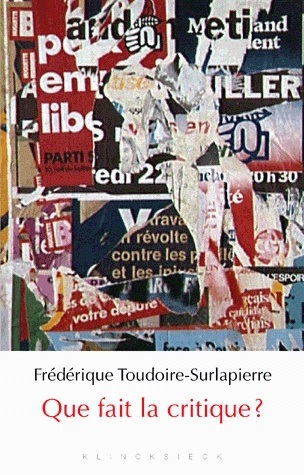Critiquing is not only a neutral intellectual or artistic activity – it reveals the ambivalence of our relationship to others by the way we communicate with them and/or confront them. This duplicity is due to the fact that producing a critique appears to be an intellectual exercise, when it is actually always an affective and emotional response. On an even deeper level, it relates to our way of perceiving and understanding a work which another person has created, thereby attesting to a talent that reveals the latter's individuality and uniqueness. What is accomplished by a critique which confronts such manifest creative power ? At the very least, it discloses what we are (or are not) capable of receiving or giving back.
Frédérique Toudoire-Surlapierre teaches Comparative Literature and the Theatre at Université de Franche-Comté. She has published Hamlet, l'ombre et la mémoire, L'Imaginaire nordique and La Dernière Fois. Her other areas of research are the cinema, the arts and the relations between these disciplines.




